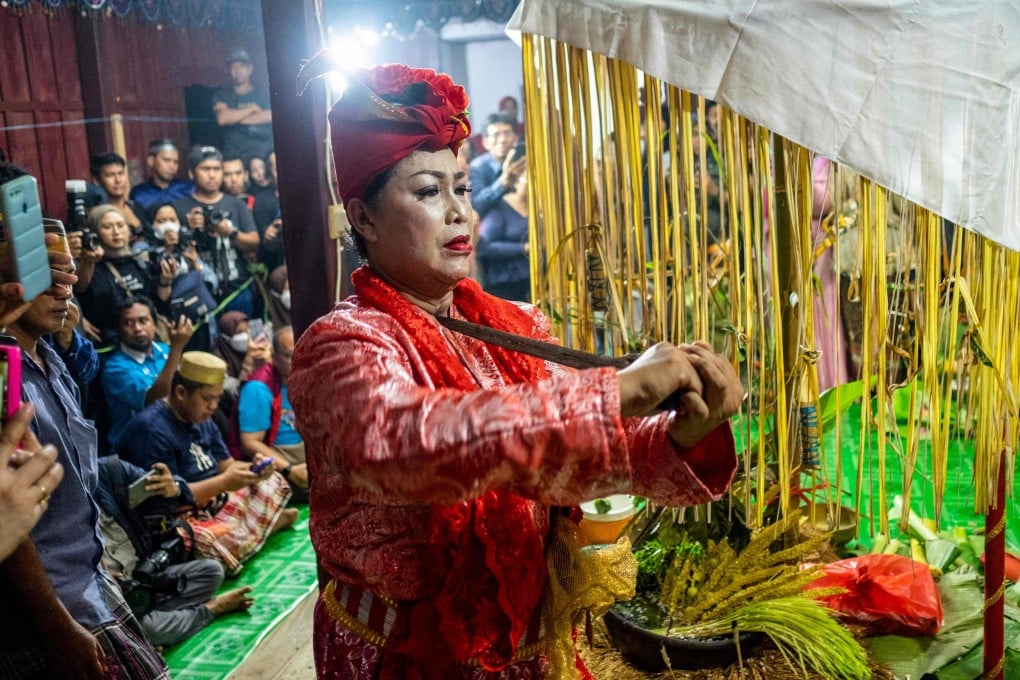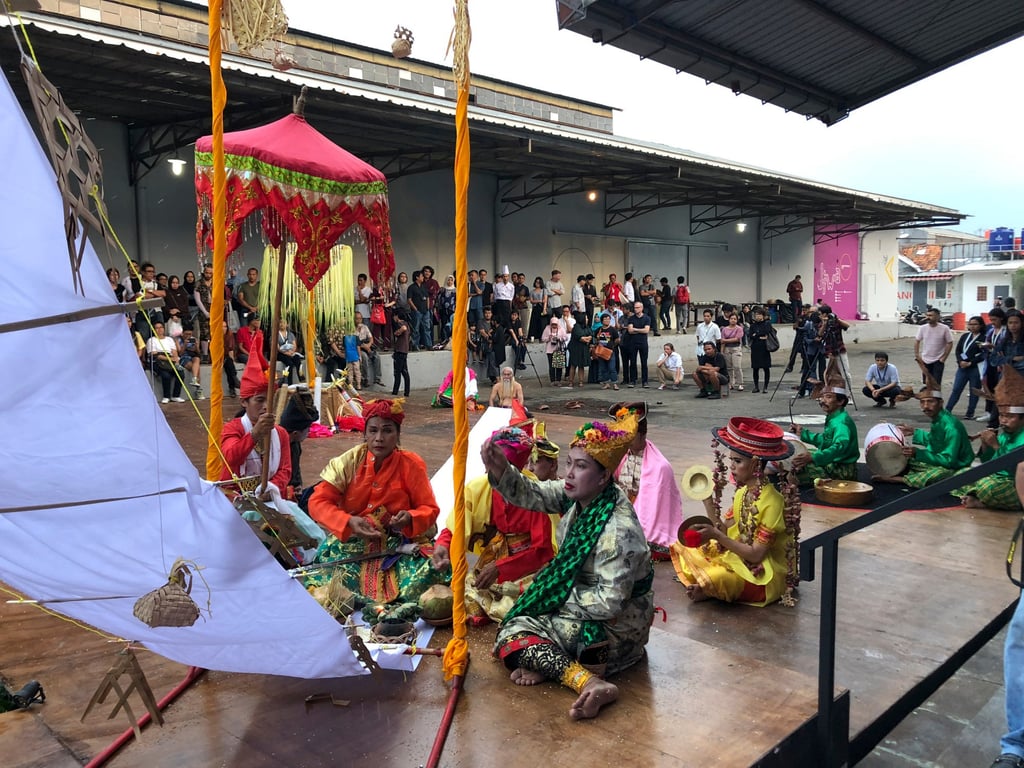In Indonesia, ‘all-gendered’ priests are fighting to keep their traditions alive
- With fewer than 40 Bissu remaining in areas across South Sulawesi, a community which once held divine status is now fighting against extinction
- Many Bissu were accused of violating Islamic principles and faced persecution, but some are trying to preserve their heritage by performing cultural, shaman-like roles

The ceremony marks the start of the planting season on the island of Sulawesi, where the androgynous Bissu community to whom they belong once held divine status, but are now fighting against extinction.
Fewer than 40 Bissu remain in just a few areas across South Sulawesi, according to anthropologists, and they now perform cultural and shaman-like roles to prevent their traditions from dying.

Nani, a Bissu in their 60s who was born male, said they faced opposition from their family when they experienced a gender identity crisis as a child, but was now at peace with who they are.
“My family disliked it, especially my older brother,” they recalled. “He kept beating me to force me to be a real man. I’ve tried to change but I could not.”
In the 1950s, a rebellion led by the Islamic State of Indonesia group sought to create a caliphate in the country, leading to many Bissu being accused of violating Islamic principles and facing persecution.
They were hunted, murdered, or forced to behave as masculine men.
